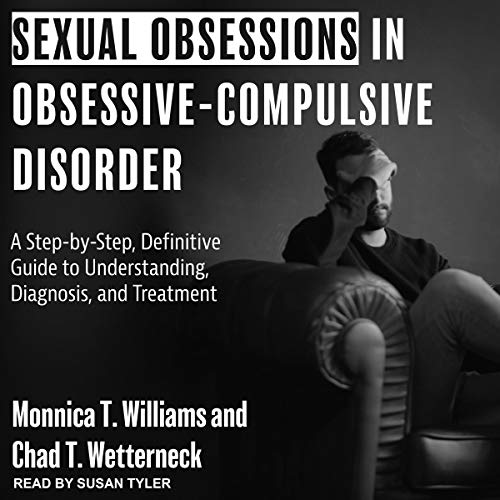Expert Help for OCD
Take Your Life Back from OCD
Offering expert treatment for all types of OCD, including unwanted obsessional thoughts. Our OCD treatment program is typically 10 weeks. We offer twice-weekly sessions, groups, and intensive programs. Intensive program can be in person or online. Low cost options available. Contact us...
Behavioral Wellness Clinic
392 Merrow Rd, Suite E,
Tolland, CT 06084
Office: (860) 830-7838
OCDTYPES
Obsessive-compulsive disorder comes in many forms
Sexual Orientation Worries in Obsessive-Compulsive Disorder
Monnica T. Williams, Ph.D., ABPP
Clinical Psychologist and OCD Researcher
Sexual OCD Symptoms
Obsessions in OCD can take many different forms, including sexual obsessions. In some cases, these obsessions involve unwanted same-sex sexual activities, mental images, or fears about sexual orientation.
Tragic consequences can result when sexual orientation themed OCD is misdiagnosed by medical professionals.
Obsessions about sexual orientation differ from an individual who is actually LGBTQ because the straight person with OCD does not generally feel attraction or sexual arousal to members of the same sex. The individual with sexual orientation obsessions fears becoming gay or discovering that he or she was unknowingly gay all along. In recent years there has been new research examining sexual orientation obsessions in OCD (SO-OCD), sometimes called HOCD for "homosexual OCD."
Sexual Orientation Obsessions (SO-OCD)
...also called Homosexual OCD
The obsessions in SO-OCD may take the form of worry about becoming or being LGBTQ, engaging in same-sex sexual behavior, and being ridiculed by others for being gay. This type of OCD is often characterized by excessive doubt. The individual may first experience sexual orientation fears when noticing that a member of the same sex is attractive. The individual then questions why they had the thought and mentally panics, leading to more questioning. These fears are more than just fleeting thoughts; they become powerful obsessions that keep coming back.

In an effort to make the thoughts stop, the individual performs compulsions, which may present as checking for indications of physical arousal when around attractive members of the same sex. Symptoms also include avoidance, such as not watching television shows in which there is an LGBTQ character or avoiding spending time with same sex friends. Conversely, the individual may watch pornography with homosexual characters to determine if it arouses them, and then compare their reactions with heterosexual pornography. Another common compulsion to combat the obsessions is to increase sexual intercourse with a partner in order to reassure the individual that s/he still enjoys sexual activity with someone of the opposite sex. People with sexual orientation obsessions are driven by the fear of losing access to people of the opposite sex and acquiring an attraction to people of the same sex.
It is reported that sexual-orientation obsessions have lifetime rates of about ten percent among treatment-seeking people with OCD. In addition, it appears that more males experience sexual orientation obsessions than females. The lack of a specific diagnostic tool to identify people with this subtype of OCD can cause people to be undiagnosed or misdiagnosed by clinicians that are not experienced in treating people with OCD. Such a therapist may mistakenly believe that the individual is undergoing a sexual identity crisis due to "being in the closet," and this sort of discussion only increases the fear in the individual. Being unable to obtain a proper diagnosis or proper treatment may lead to feelings of hopelessness, despair, and even suicidal ideation. This makes sexual orientation obsessions a particularly worrisome type of OCD. Thus it is vitally important that people with sexual obsessions in OCD be treated by an experienced and effective OCD therapist.
Research Articles
Williams, M. Homosexuality Anxiety: A Misunderstood Form of OCD. In Leading-Edge Health Education Issues, L. V. Sebeki, ed., Nova Science Publishers, 2008.
Williams, M. T., Crozier, M., Powers, M. B.: Treatment of Sexual Orientation Obsessions in Obsessive-Compulsive Disorder using Exposure and Ritual Prevention, Clinical Case Studies, 10: 53-66, February 2011.
Williams, M. T., Farris, S.G.: Sexual Orientation Obsessions in Obsessive-Compulsive Disorder: Prevalence and Correlates, Psychiatry Research, 187: 156-159, 2011.


